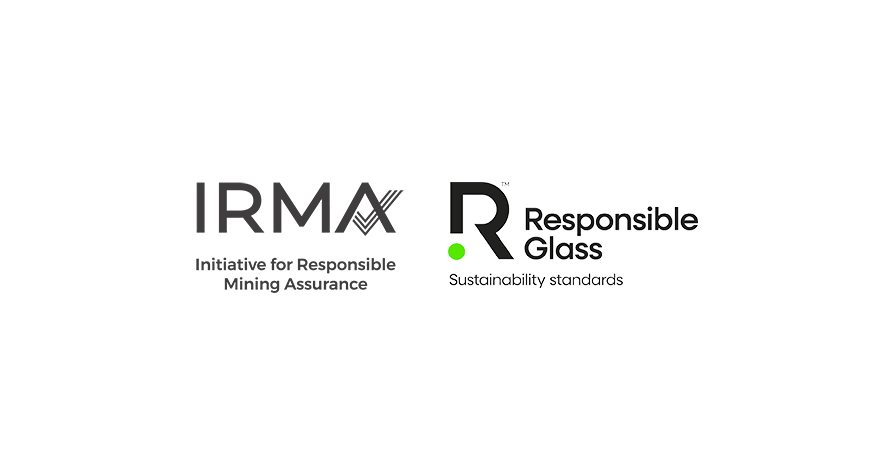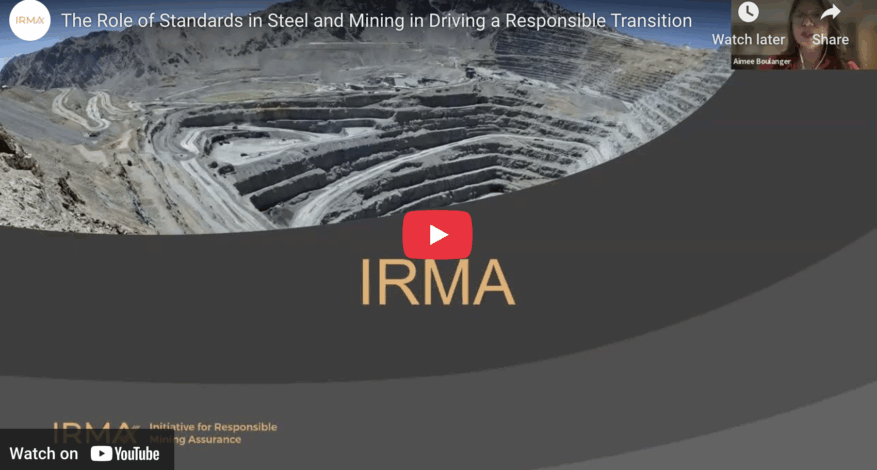ResponsibleGlass and IRMA forge foundational partnership to drive responsibility in glass supply chains
FOR IMMEDIATE RELEASE:
Date: 21 October 2025. ResponsibleGlass, the newly formed global multi-stakeholder not-for-profit standards and certification programme for the responsible low-carbon production of glass, today announced a landmark Memorandum of Understanding (MOU) with the Initiative for Responsible Mining Assurance (IRMA).
This MOU marks the first major collaboration for ResponsibleGlass and establishes a clear path to align the new developing glass standard with IRMA’s comprehensive best practices for the responsible extraction and processing of the materials critical to glassmaking, including sand, silicates and soda ash (trona).
Both organisations share a core belief in the value of multi-stakeholder governance – involving civil society, labour advocates, mining and processing companies, manufacturers, product end users and the finance sector – to drive positive environmental and social change.
The collaboration will focus on several significant areas:
- Standards Alignment: ResponsibleGlass will align its requirements for the sourcing of mined materials with IRMA’s established standards to strengthen due diligence and transparency from the points of extraction.
- Avoiding duplication: by leveraging IRMA’s existing assurance system for raw materials, the partnership aims to avoid duplication and inefficiency in developing standards for the entire glass supply chain.
- Market Demand: the organisations will work together to communicate with downstream glass users, building market demand for responsibly sourced glass in high growth sectors such as building, automotive, solar and technology industries.
- Shared systems: the organisations will also explore the potential to develop joint systems for managing the chain of custody of materials through the glass supply chain, from “cradle to grave”.
Francis Sullivan, chair of ResponsibleGlass, commented on the significance of the partnership:
“This partnership with IRMA is a foundational step for ResponsibleGlass and immediately injects world-class credibility into our initiative. Our mission is to ensure the entire glass supply chain is responsible, and that journey starts at the source. By aligning with IRMA, the global leader in responsible mining assurance, we will ensure our standard for essential inputs like sand and soda ash are robust, credible, and truly benefit the people and lands involved in extraction. This is how we build a glass standard the world can trust.”
Aimee Boulanger, Executive Director of IRMA highlighted the strategic alignment:
“IRMA’s standards are built on a foundation of multi-stakeholder equal governance, driving value for better social and environmental practices in mining. This collaboration with ResponsibleGlass is a logical and powerful extension of our work. It allows us to apply our expertise to key glass inputs – avoiding duplication and accelerating market demand for responsibly sourced glass in critical sectors. This partnership shows how two independent organisations can collectively create a more resilient and responsible global supply chain.”
The specific actions and joint programmes under the MOU will be developed over time, focusing on accelerating the shift toward more responsible practices across the glass industry.
FOR MORE INFO contact:
Ali Lucas, Project Director – ResponsibleGlass +44 (0) 7786 546724
Ali.lucas@responsibleglass.org
Rebecca Burton, Deputy Director – IRMA
info@responsiblemining.net
NOTES:
- This MOU is nonexclusive between ResponsibleGlass and IRMA.
- Further information on ResponsibleGlass can be found here: www.responsibleglass.org
- Further information on IRMA can be found here: www.responsiblemining.net


